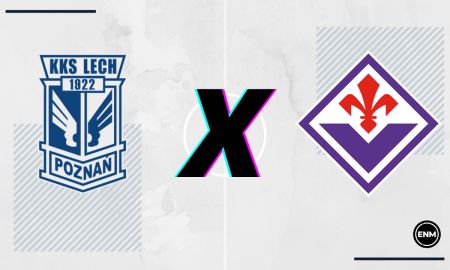The Intense Rivalry: Gremio vs Internacional
Por um escritor misterioso
publicado em dezembro/22/2024

Explore the intense and historic rivalry between Gremio and Internacional, two of Brazil's biggest football clubs.

/cdn.vox-cdn.com/uploads/chorus_image/image/70639994/1316526405.5.jpg)
Gremio was founded in 1903, making it one of the oldest football clubs in Brazil. The team has won numerous titles including multiple Campeonato Brasileiro Serie A titles, Copa Libertadores, and FIFA Club World Cup. Gremio's home stadium is the Arena do Gremio, which has a capacity of over 55,000 spectators.
Internacional was founded in 1909 and also boasts an impressive list of achievements. The club has won several Campeonato Brasileiro Serie A titles, Copa Libertadores trophies, and FIFA Club World Cup. Their home stadium is Estadio Beira-Rio with a seating capacity of around 50,000.
The rivalry between Gremio and Internacional goes beyond just geographical proximity. It represents class differences within Porto Alegre society. Historically, Gremio has been associated with the working-class while Internacional has been linked to the middle class. This socio-economic divide adds another layer of intensity to their clashes on the field.
One iconic moment that epitomizes this rivalry occurred during the final match of the 1988 Campeonato Brasileiro Serie A championship. In this match known as 'Batalha dos Aflitos' (Battle of the Afflicted), Gremio faced Internacional in a highly contentious game. The match was filled with controversial decisions, sending-offs, and penalties. Despite being reduced to only seven players on the field, Gremio managed to win the match 2-1 and secure their spot in the top division.
The rivalry extends beyond just football matches. Fans from both clubs engage in passionate debates and discussions throughout the year, whether it's on social media platforms or in person. The city of Porto Alegre is often divided into 'red' for Internacional fans and 'blue' for Gremio supporters during match days.
In recent years, both Gremio and Internacional have been successful on the national and international stage. They have regularly qualified for continental competitions such as Copa Libertadores, adding more significance to their encounters. The matches between these two teams are known for their intensity, physicality, and high stakes.
When it comes to head-to-head statistics, Gremio has historically had a slight edge over Internacional in terms of victories. However, every Grenal is unpredictable, and form goes out of the window when these two teams face each other.
In conclusion, the rivalry between Gremio and Internacional is one of the fiercest rivalries in Brazilian football. It goes beyond just a simple sporting contest; it represents history, culture, class differences, and intense passion. The Grenal matches are always eagerly awaited by fans as they bring out the best from both teams while igniting emotions both on and off the field.




Trabzonspor Fenerbahçe'yi iki golle geçti
/cdn.vox-cdn.com/uploads/chorus_image/image/70639994/1316526405.5.jpg)
Real Madrid draw Chelsea in Champions League Quarterfinals - Managing Madrid
Gremio and Internacional are two of the most successful and popular football clubs in Brazil. Both based in Porto Alegre, the capital city of Rio Grande do Sul state, these clubs have a long-standing rivalry that is deeply rooted in history, passion, and fierce competition. The matches between these two teams are always highly anticipated by fans and are often referred to as 'Grenal', which is a combination of both club names.Gremio was founded in 1903, making it one of the oldest football clubs in Brazil. The team has won numerous titles including multiple Campeonato Brasileiro Serie A titles, Copa Libertadores, and FIFA Club World Cup. Gremio's home stadium is the Arena do Gremio, which has a capacity of over 55,000 spectators.
Internacional was founded in 1909 and also boasts an impressive list of achievements. The club has won several Campeonato Brasileiro Serie A titles, Copa Libertadores trophies, and FIFA Club World Cup. Their home stadium is Estadio Beira-Rio with a seating capacity of around 50,000.
The rivalry between Gremio and Internacional goes beyond just geographical proximity. It represents class differences within Porto Alegre society. Historically, Gremio has been associated with the working-class while Internacional has been linked to the middle class. This socio-economic divide adds another layer of intensity to their clashes on the field.
One iconic moment that epitomizes this rivalry occurred during the final match of the 1988 Campeonato Brasileiro Serie A championship. In this match known as 'Batalha dos Aflitos' (Battle of the Afflicted), Gremio faced Internacional in a highly contentious game. The match was filled with controversial decisions, sending-offs, and penalties. Despite being reduced to only seven players on the field, Gremio managed to win the match 2-1 and secure their spot in the top division.
The rivalry extends beyond just football matches. Fans from both clubs engage in passionate debates and discussions throughout the year, whether it's on social media platforms or in person. The city of Porto Alegre is often divided into 'red' for Internacional fans and 'blue' for Gremio supporters during match days.
In recent years, both Gremio and Internacional have been successful on the national and international stage. They have regularly qualified for continental competitions such as Copa Libertadores, adding more significance to their encounters. The matches between these two teams are known for their intensity, physicality, and high stakes.
When it comes to head-to-head statistics, Gremio has historically had a slight edge over Internacional in terms of victories. However, every Grenal is unpredictable, and form goes out of the window when these two teams face each other.
In conclusion, the rivalry between Gremio and Internacional is one of the fiercest rivalries in Brazilian football. It goes beyond just a simple sporting contest; it represents history, culture, class differences, and intense passion. The Grenal matches are always eagerly awaited by fans as they bring out the best from both teams while igniting emotions both on and off the field.

Fiorentina Archives - Esporte News Mundo

casas #bellas #lindas #bonitas #fyp #hermosas #olanchito🇭🇳 #parati, casas bonitas diseños
